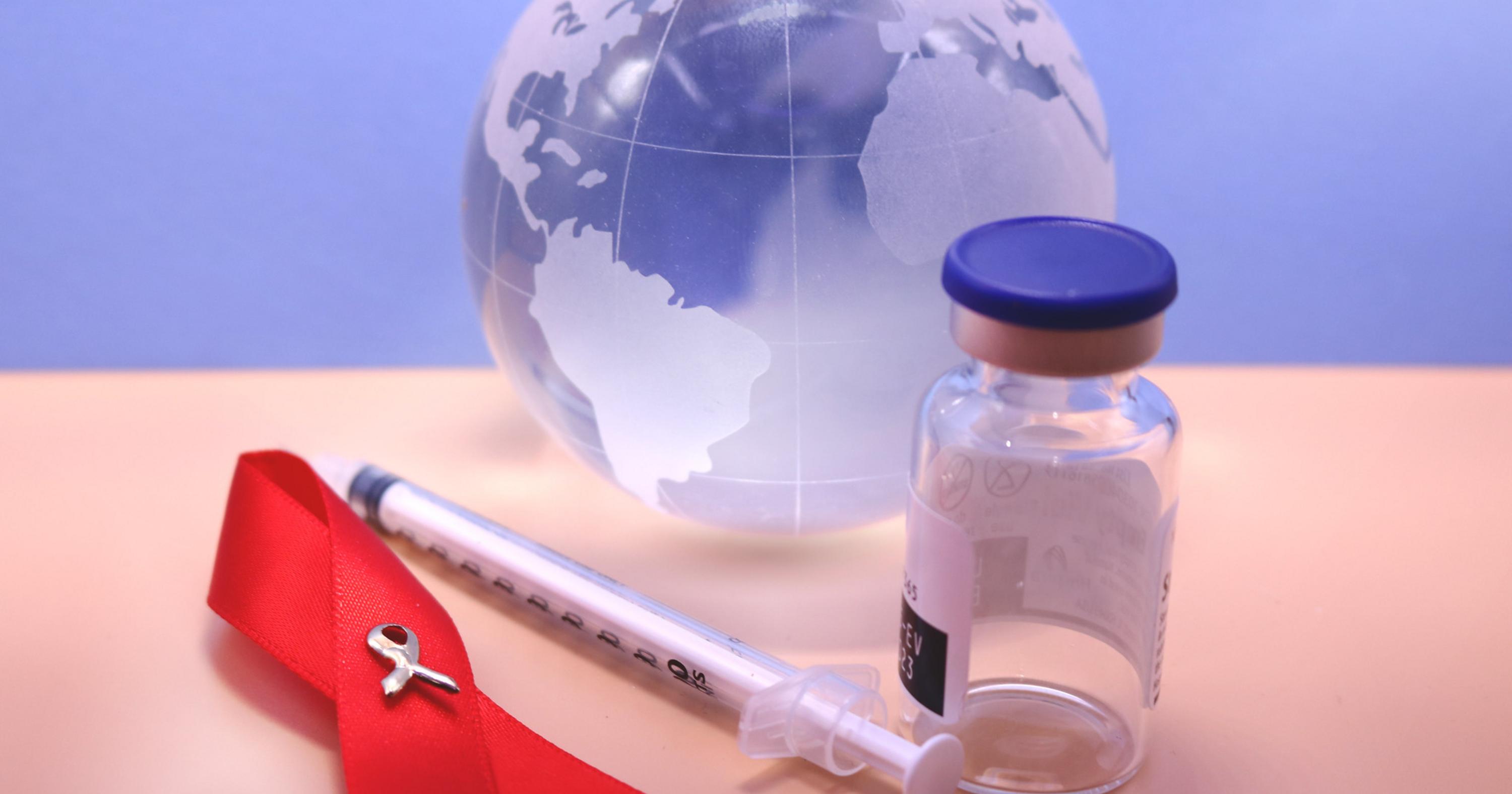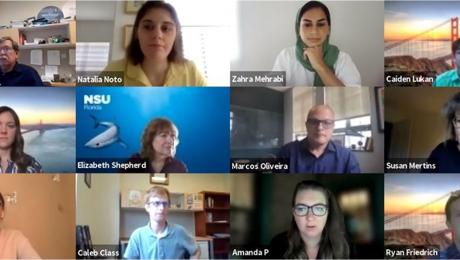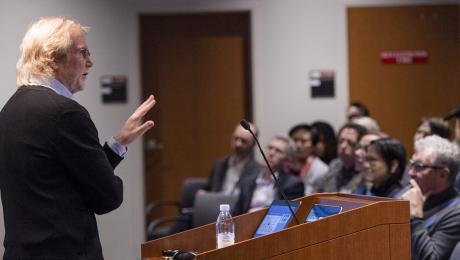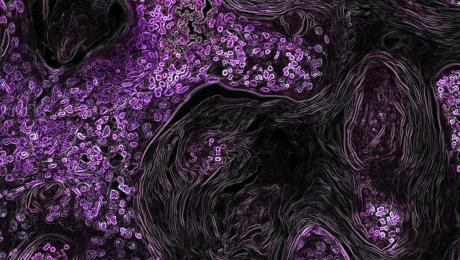All News
Second annual ATOM summer training program empowers and equips students
Cancer Data Science InitiativesPosted 8/24/2021Six graduate students from Butler University and Nova Southeastern University completed a virtual 10-week summer training program with the Accelerating Opportunities for Therapeutics in Medicine (ATOM) Consortium at the end of July. Their efforts are the latest part of ATOM’s mission to put accelerated, computer-based pharmaceutical discovery in the hands of the scientific…
Risk factor identified for disease disproportionately affecting African Americans
Basic Science ProgramPosted 8/9/2021Frederick National Laboratory (FNL) scientists and their colleagues have identified a genetic risk factor for a dangerous blood pressure disorder in pregnant women of African descent, who are three times as likely to develop the disorder as White women.
The scientists reported in the June issue of the American Journal of Kidney Diseases that when mothers of African descent…
Newly published metadata standards for biological imaging aim to make data sets more accessible
Posted 8/9/2021Meta tags are used on web pages. Metadata is added to photographs. Both help people find, use, and reuse these digital assets. Scientists say the same is needed for image data in biology, and urgently so.
“A single imaging data set could be a thousand images,” said Frederick National Laboratory imaging scientist Kedar Narayan. “Someone might say they don’t want the full…
RAS Initiative: An ambitious model eight years in
RAS InitiativePosted 8/3/2021Across the world, conferencing software flicked open on computer screens. It was 8 a.m. in San Francisco, 11 a.m. in Frederick, 5 p.m. in Madrid, 11 p.m. in Hong Kong. The first day of the Third National Cancer Institute RAS Initiative Symposium was about to begin. Time zones notwithstanding, scientists and onlookers were tuning in from offices, studies, and living rooms to…
Study shows disruption to cancer screenings during initial wave of COVID-19 pandemic
Clinical Monitoring Research ProgramPosted 7/26/2021The initial response to the COVID-19 pandemic disrupted cancer screenings as it caused many countries to suspend services following government guidance and to reallocate screening resources, a new study shows.
“The full impact of the suspension of the screening and what this dynamic is going to mean in cancer in general is still to be seen,” said Douglas Puricelli Perin,…
Collaborative study puts Chernobyl hereditary mutation fears to rest
Posted 7/13/2021Cleanup workers and others exposed to radiation from the Chernobyl nuclear accident in 1986 are unlikely to pass any genetic damage on to future generations, according to a new study.
“This is good news for the people of Eastern Europe,” said Frederick National Laboratory scientist Meredith Yeager, first author on the multi-institutional study led by Stephen Chanock of the…
Partnership seeks to develop KRAS degraders for cancer therapy
Partnership Development Office, RAS InitiativePosted 6/22/2021The Frederick National Laboratory for Cancer Research and biotech company Progenra, Inc., recently signed a contractor Cooperative Research and Development Agreement (cCRADA) to develop a novel therapy that could be capable of degrading KRAS.
The human KRAS gene is one of the most elusive and potentially promising cancer therapy targets. KRAS mutations drive multiple…
Genetic twist helps explain unique properties of promising AIDS vaccine
AIDS and Cancer Virus ProgramPosted 5/27/2021While a unique AIDS vaccine approach had previously shown an encouraging and unprecedented kind of protection against AIDS virus infection in nonhuman primate models, the underlying mechanism for this distinctive form of vaccine protection has remained unclear – until now. New research has provided important insights into understanding how the promising vaccine works.…
VRC01 HIV antibody falls short in trials, but don’t discount antibodies yet
Vaccine Clinical Materials ProgramPosted 5/20/2021An anti-HIV antibody called VRC01 does not protect people from acquiring HIV, according to findings from the Antibody-Mediated Prevention (AMP) Trials.
The results were recently reported in the New England Journal of Medicine. While they indicate that this antibody alone is not a strong HIV-prevention measure, the data suggest that antibodies remain a potentially viable…
FNL partnership with LSU Health New Orleans to investigate links between obesity and lung cancer
Partnership Development OfficePosted 5/13/2021While the link between certain conditions and cancer risk, such as tobacco smoke exposure and lung cancer, has been firmly established, for other conditions, the association and the biological mechanisms behind them remain murky.
To this end, the Frederick National Laboratory for Cancer Research (FNL) and Louisiana State University (LSU) Health Sciences Center New Orleans…













